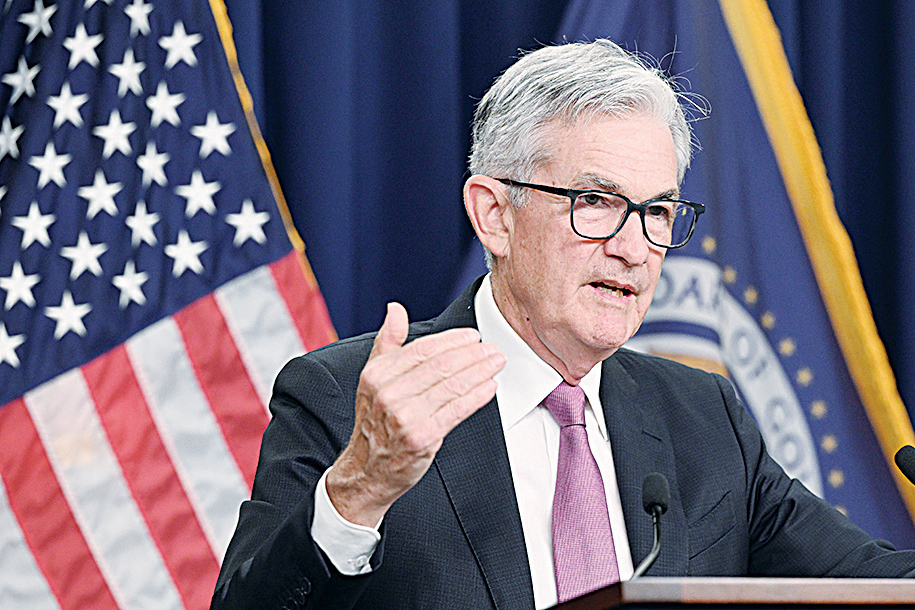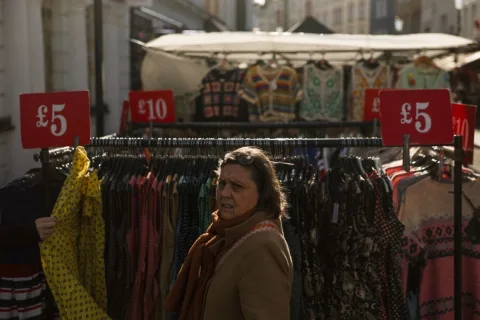WASHINGTON: The US central bank will have to stick to its policy of raising interest rates into next year to ensure that high inflation comes down to the two percent target, a Federal Reserve official said Friday. Fed Governor Christopher Waller cautioned that lowering inflation will take time, and he supports another "significant increase" in the benchmark lending rate at the September 20-21 policy meeting. The strong job market and the fact the world's largest economy has avoided a recession allow the Fed to continue to move aggressively, he said in a speech prepared for delivery to a conference in Vienna.
"I expect it will take some time before inflation moves back to our 2 percent goal," he said, and the Fed "will be tightening policy into 2023." His comments echoed the hawkish statements from other Fed officials recently, including US central bank chief Jerome Powell, who on Thursday stressed that policymakers must move "strongly" to avoid a repeat of the painful inflation surge the US economy suffered in the 1970s and 1980s.
US inflation has reached a 40-year high this year, and though the economy saw two quarters of negative growth-which is commonly viewed as a sign of recession-low unemployment and strong spending show activity has not slowed significantly. "The fears of a recession starting in the first half of this year have faded away and the robust US labor market is giving us the flexibility to be aggressive in our fight against inflation," Waller said.
"Right now there is no tradeoff between the Fed's employment and inflation objectives," he said. The Fed has raised rates four times this year including two massive three-quarter point hikes, with a third expected later this month. How high policymakers will have to take the benchmark rate will depend on incoming inflation data, Waller said.
But "I believe the policy decision at our next meeting will be straightforward," he said. He cautioned that even amid some encouraging signs of moderating price pressures "it is too soon to say whether inflation is moving meaningfully and persistently downward." "This is a fight we cannot, and will not, walk away from."
The ECB warned Thursday that inflation was "far too high" and likely to stay above target for "an extended period" as it announced its record 0.75 percentage point hike. ECB chief Christine Lagarde made clear interest rates were far from where they need be to bring inflation down. "We actually took the decision today that we would continue to raise interest rates... because we believe that we are far away from the rate at which we hope we'll see inflation return to the two percent medium term target," she said.
Lagarde also warned the eurozone risks recession if Russia completely cuts off gas, which it has nearly done. But comments by Fed chief Jerome Powell were seen as even more hawkish than those by Lagarde. "We need to act now forthrightly, strongly as we have been doing and we need to keep at it until the job is done to avoid ... the kind of very high social costs" of the surge in inflation in the 1970s and 1980s, Powell told a US think tank.
Chris Beauchamp, chief market analyst at online trading platform IG, said "Investors clearly believe that the Fed is more committed to higher rates than the ECB, while the stronger economic performance of the US means the greenback and not the euro seems the more attractive prospect." The euro, which had broken back above parity with the dollar, slid down as far as $0.9934 before recovering some ground. The Fed has made it clear it plans to continue to aggressively raise interest rates to rein in surging inflation, even at the cost of causing some economic pain. - AFP











